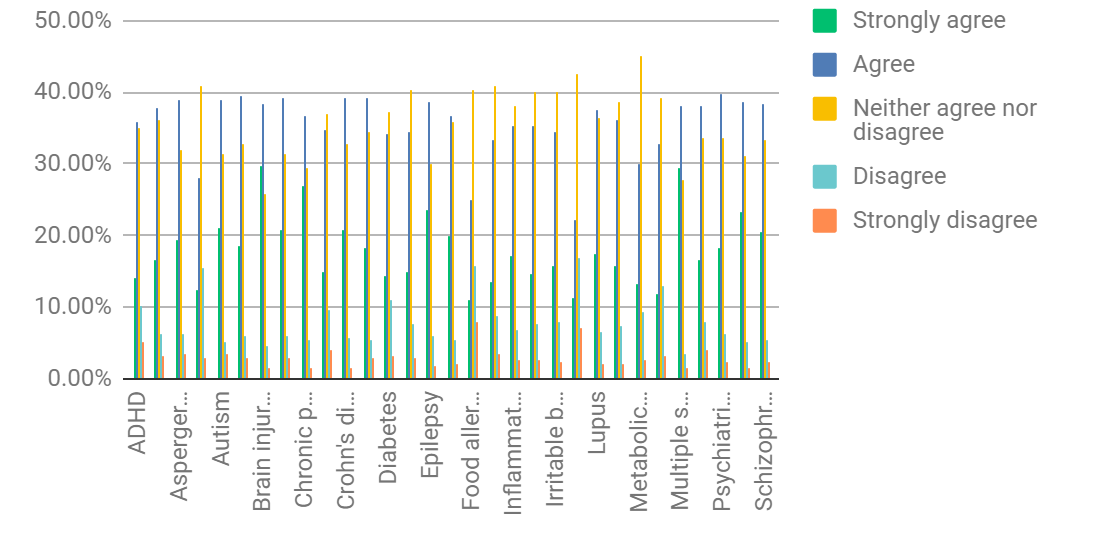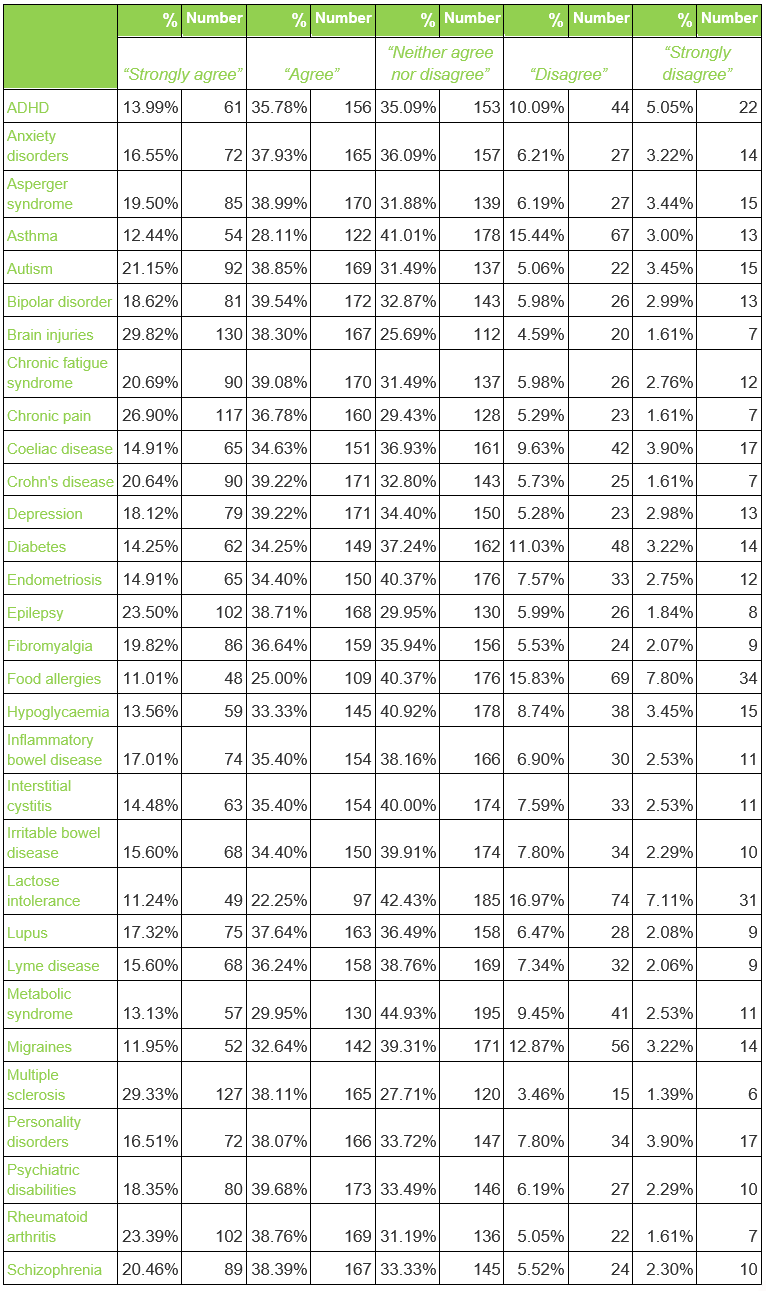Stoma Awareness and Attitudes - Complete Survey Data
Undergoing stoma surgery can be a life-changing process in many cases. For some, a stoma will be the solution to a long-term health complaint; for others, a necessary intervention after a sudden-onset condition or traumatic injury. In all cases, living with a stoma will require careful lifestyle adjustments, as well as support from medical professionals and those around you.
Figures from Colostomy UK indicate that one in 500 people in the UK are currently living with a stoma, yet ostomates are not often discussed or represented in public life, and there remains a perception that the needs of stoma patients are poorly understood. In order to gain a better understanding of how much the British public really knows about this issue, Potter Rees Dolan recently carried out a survey to assess attitudes towards and awareness of stomas in the UK.
A total of 518 respondents took part in our survey, revealing some eye-opening insights into how stoma-aware Britons actually are - and highlighting some key areas where further education might still be needed.
The full findings of our survey are included below; please feel free to use our findings for your own content, citing Potter Rees Dolan at prd.uk.com as you do so.
Key trends and findings
People in the UK have a solid awareness of stomas

One of the most interesting revelations from our survey is that generally speaking, the UK public is aware of stomas and understands why they are medically necessary.
- 65% of respondents said they knew what a stoma is, despite only 28% personally knowing someone with a stoma, and only 2% having a stoma themselves
- 68% were either somewhat or very confident that they understand why someone would require a stoma
- Most people recognise that people who have suffered from bowel cancer (73%) and Crohn's disease (62%) would require a stoma, as well as those who have undergone bowel surgery (72%)
Most people believe ostomates should not need to feel self-conscious

Perhaps most encouragingly, the majority of respondents wanted to see people with stomas feeling less self-conscious about their conditions in public.
- 78% of respondents either agreed or strongly agreed that people with colostomy, ileostomy and urostomy bags should not have to feel self-conscious about them being visible
- 59% said they would not feel uncomfortable if a friend or colleague had a visible colostomy, ileostomy or urostomy bag
Respondents understood that some health conditions can’t always be seen

Ostomates often face challenges due to the “invisible” nature of their condition, meaning they face health challenges that cannot always be immediately perceived by those they encounter. However, our survey indicated that general understanding and sympathy towards people with ”hidden” illnesses and disabilities is reasonably high.
- The vast majority of respondents (86%) said they understand the term “invisible illness”, with 42% saying they “fully understand” the concept
- 79% of those polled say they do not believe that only people with obvious physical disabilities should be able to use disabled toilets, with 55% strongly disagreeing with this statement
Some invisible illnesses elicit more sympathy than others
However, the survey also revealed that the UK public are more likely to be sympathetic to the social and health needs of people with certain invisible conditions than they are for others.
- When asked who should be allowed to use disabled toilets, the vast majority of respondents agreed that people with Crohn’s disease (87%), inflammatory bowel disease (85%) and multiple sclerosis (83%) should have access
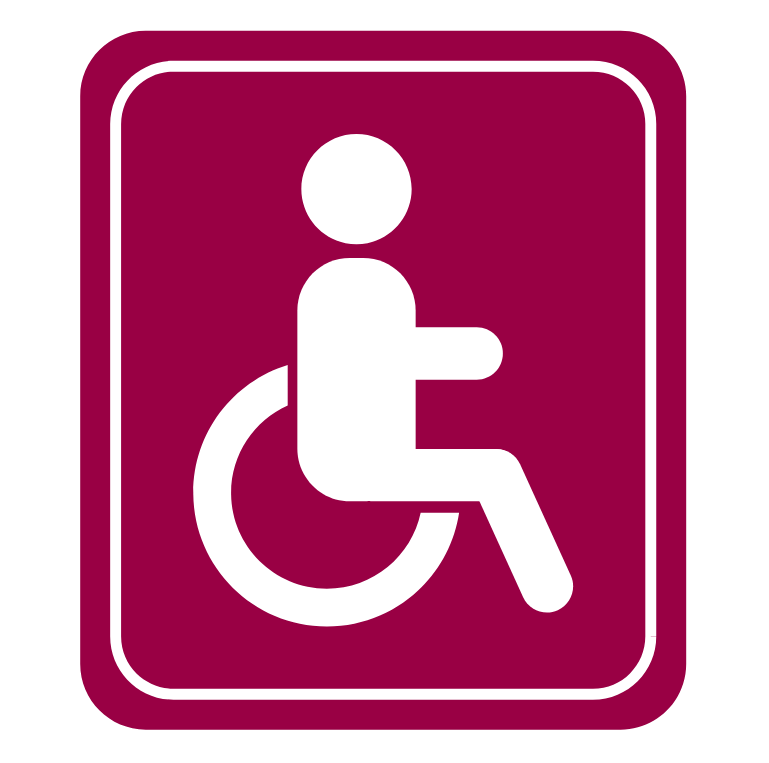
- By contrast, a minority thought the same privilege should be extended to people with migraines (28%), asthma (31%) and depression (34%)
- Multiple sclerosis, rheumatoid arthritis, chronic pain, brain injuries, chronic fatigue syndrome, fibromyalgia, epilepsy and Crohn's disease were the only invisible illnesses for which a majority of respondents felt that sufferers should be able to use disabled parking spaces
- When asked about illnesses for which people should receive special treatment at work, brain injuries (68%), multiple sclerosis (67%), chronic pain (64%), epilepsy (62%) and rheumatoid arthritis (62%) came out ahead
- A majority did not feel that lactose intolerance, food allergies, asthma, metabolic syndrome, migraines, hypoglycaemia, diabetes and endometriosis warranted special treatment at work

Do you know what a stoma is?
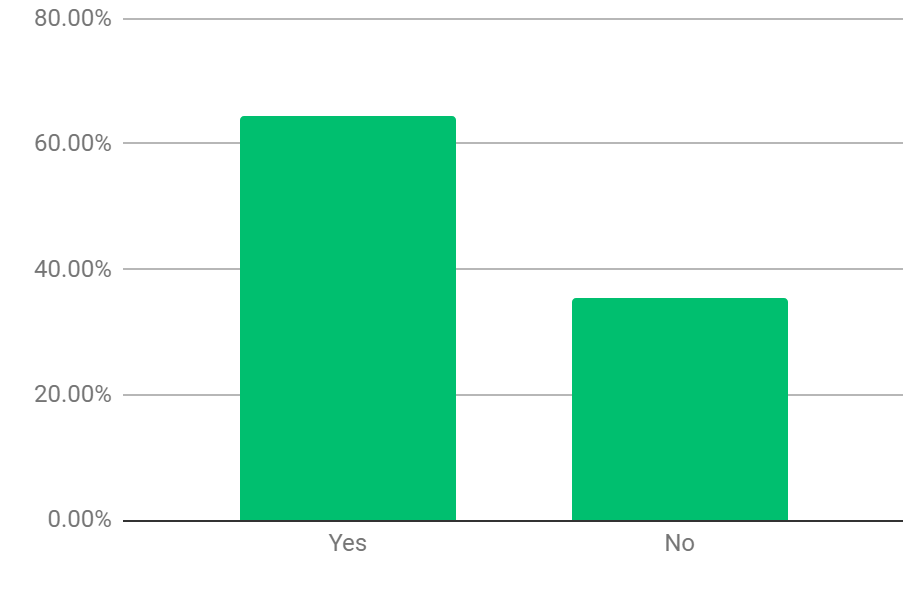
Do you have a stoma?
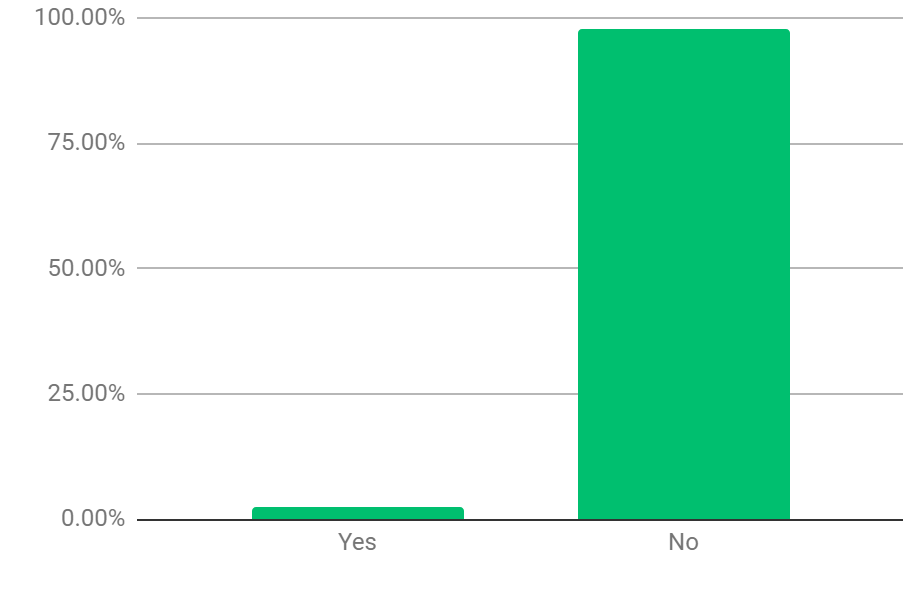
Do you know a family member, friend or colleague with a stoma?
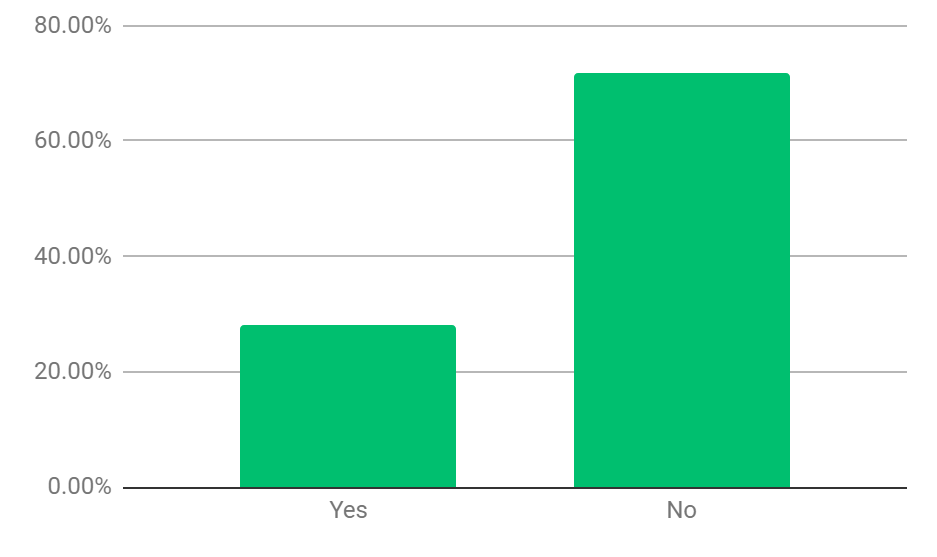
How confident are you that you understand why someone would require a stoma?
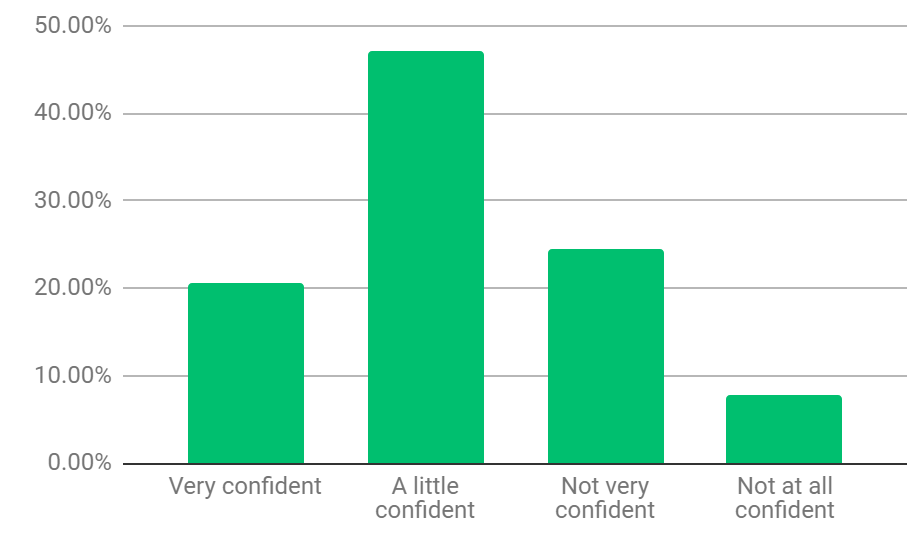
Please identify which of the following can result in the need for a stoma.
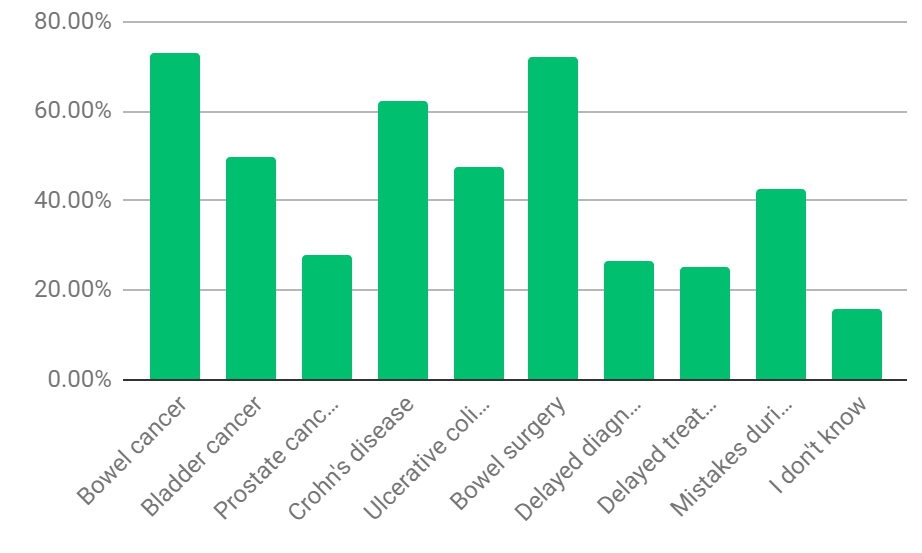
Have you ever seen anyone wearing a colostomy/ileostomy/urostomy bag that was visible while out in public?
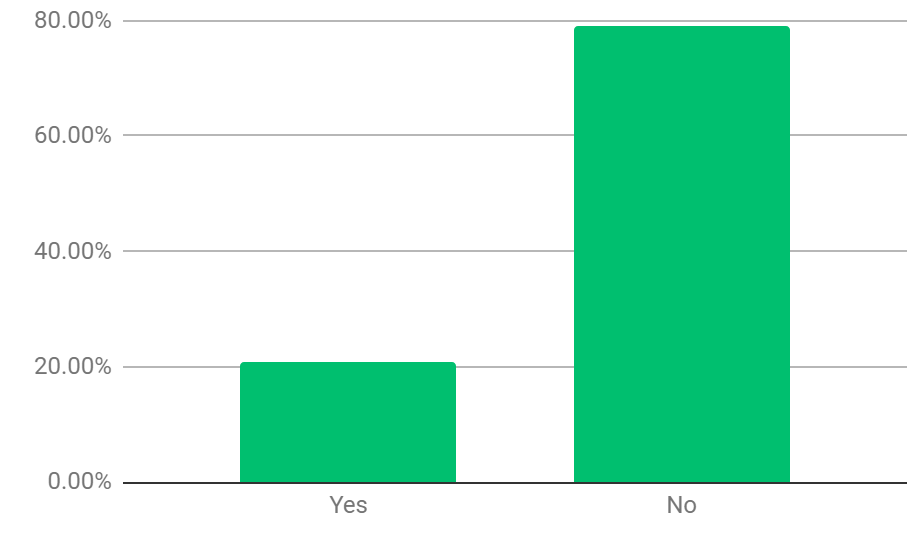
How much do you agree with the following statement:
"I believe people who wear a colostomy/ileostomy/urostomy bag should not feel self-conscious about it being visible."
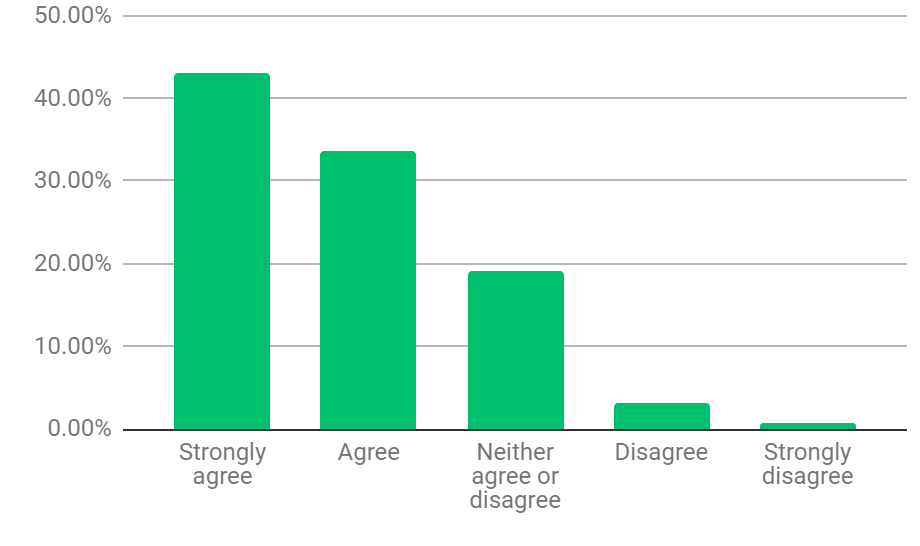
How much do you agree with the following statement:
"I believe that only people with an obvious physical disability should be able to use a disabled toilet."
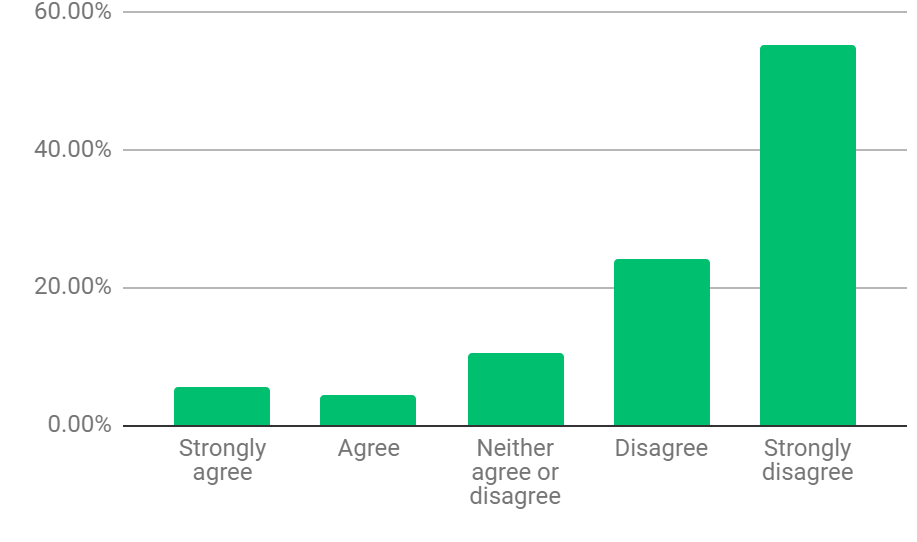
How much do you agree with the following statement:
"I would feel uncomfortable if a friend/colleague had a visible colostomy/ileostomy/urostomy bag."
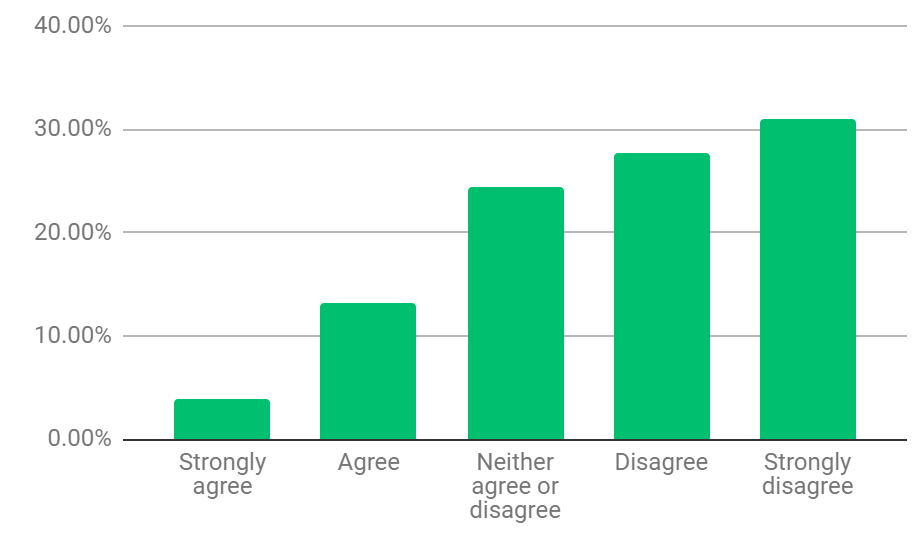
In your opinion, how difficult would it be to take part in the following sports whilst wearing a stoma?
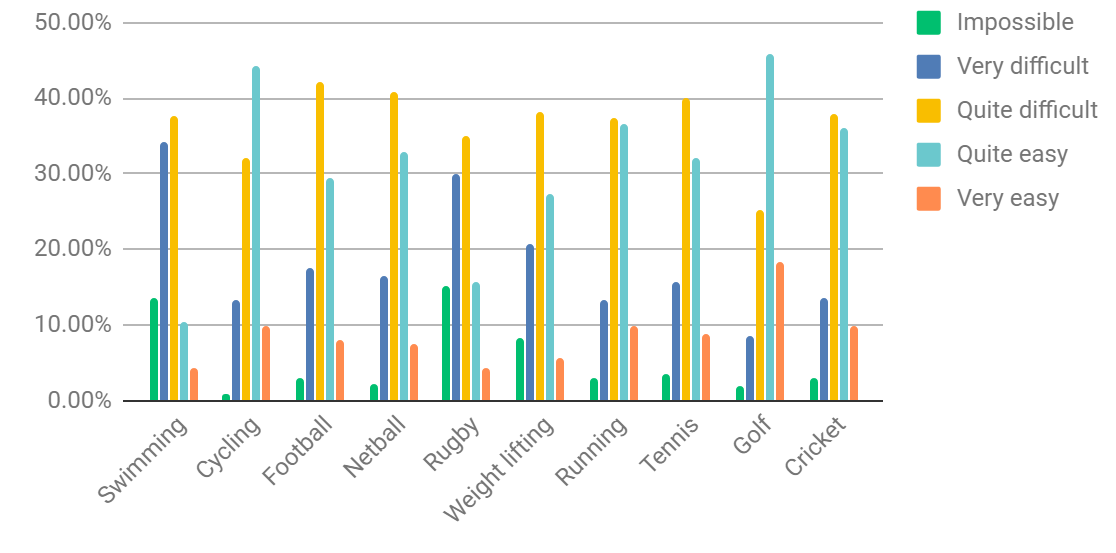
To what extent do you believe you understand the term 'invisible illnesses'?
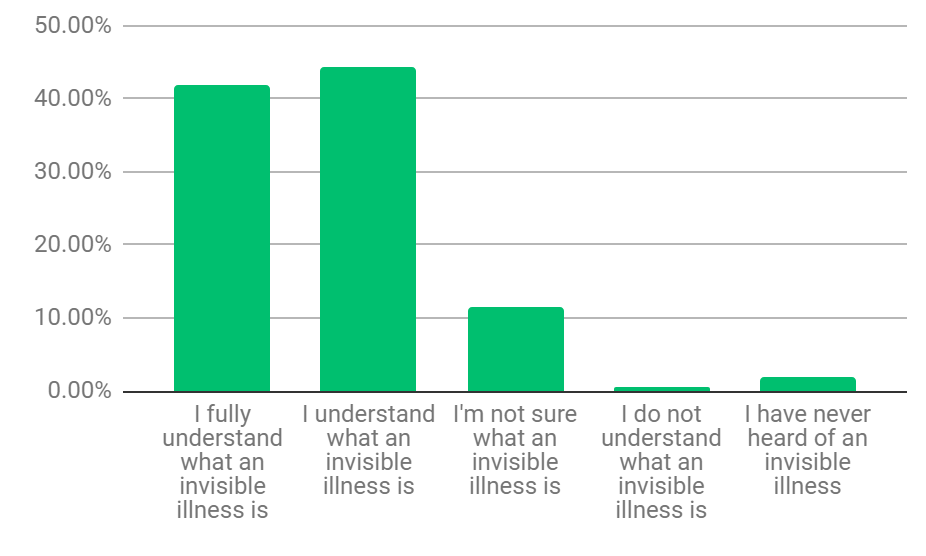
"People with this illness should be allowed to use a disabled toilet.”
Tell us whether you agree or disagree with this statement for each of the illnesses below.
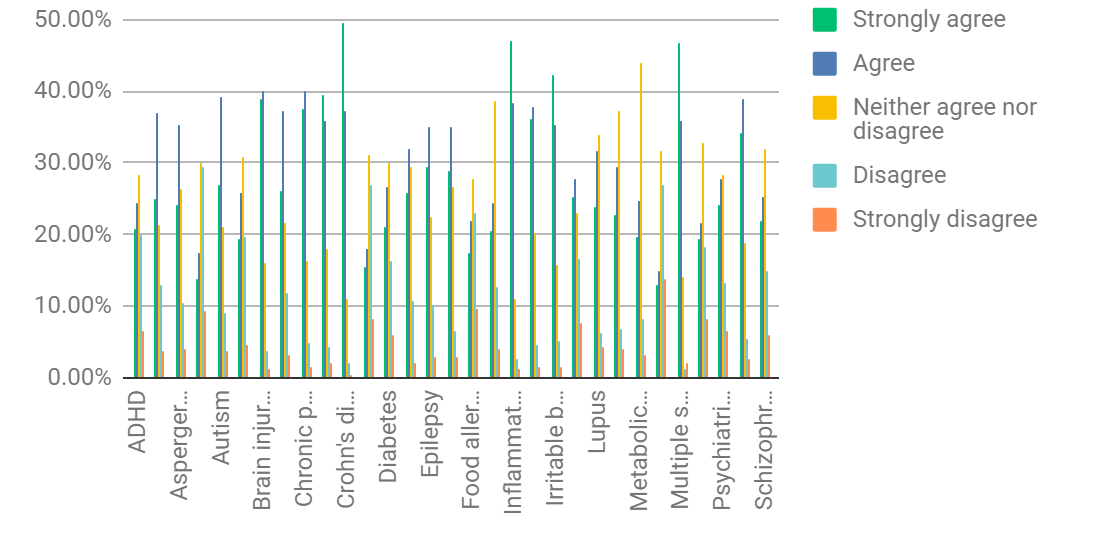
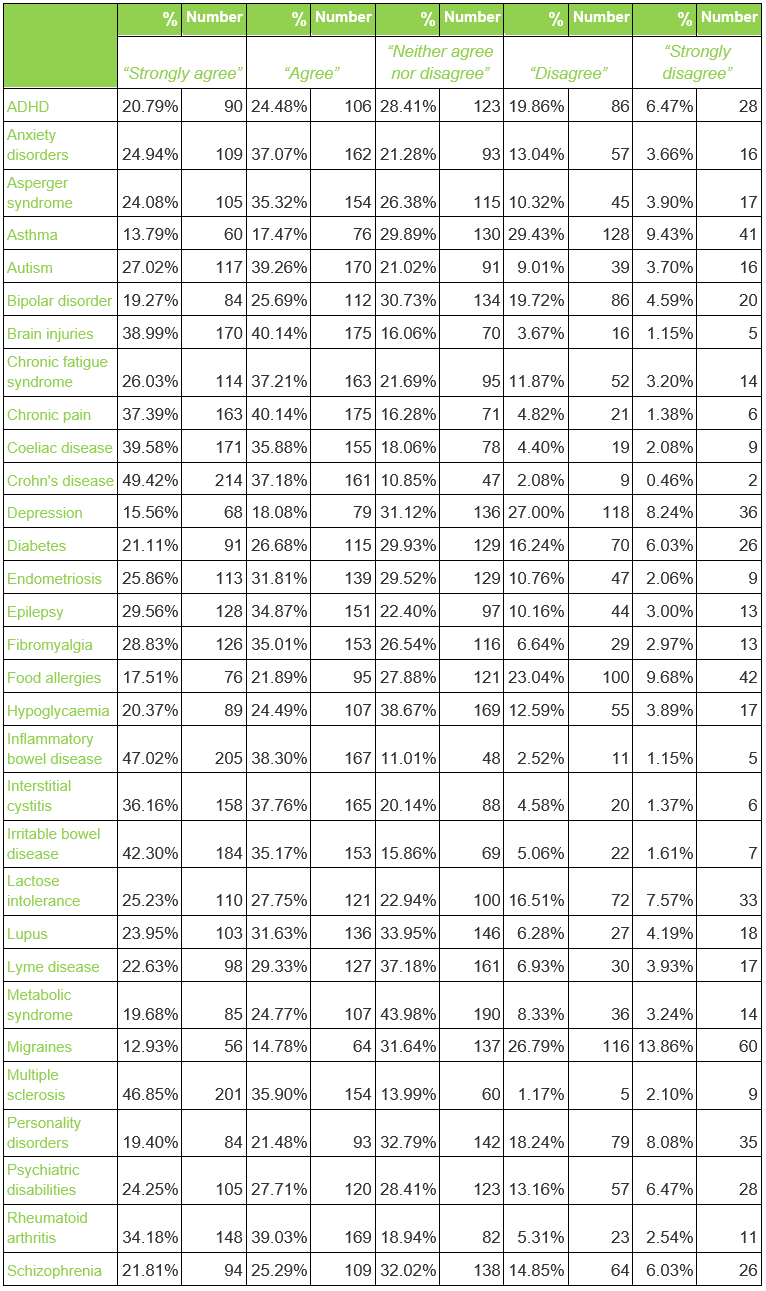
"People with this illness should be allowed to use a disabled parking space."
Tell us whether you agree or disagree with this statement for each of the illnesses below.
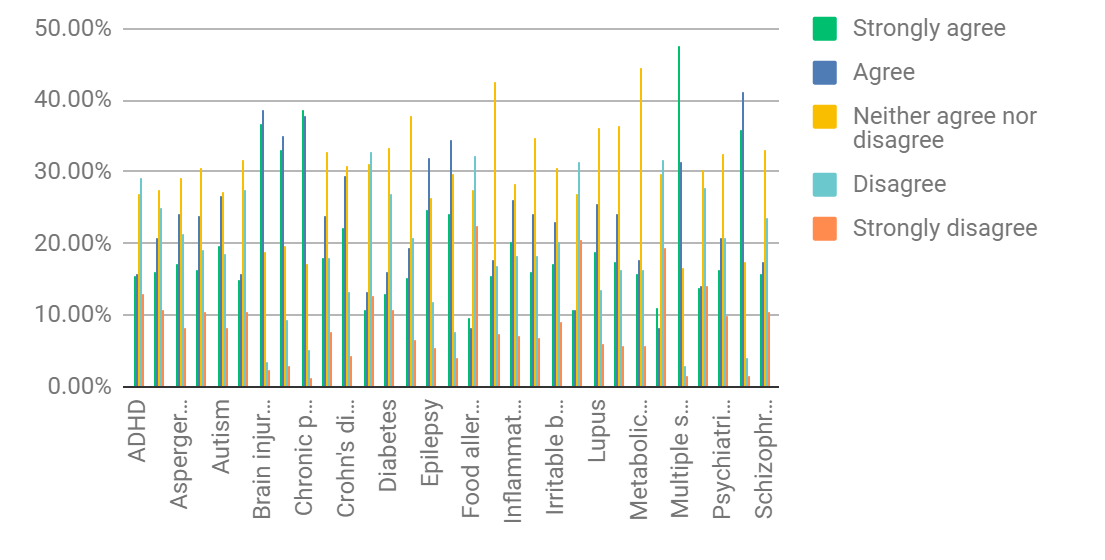
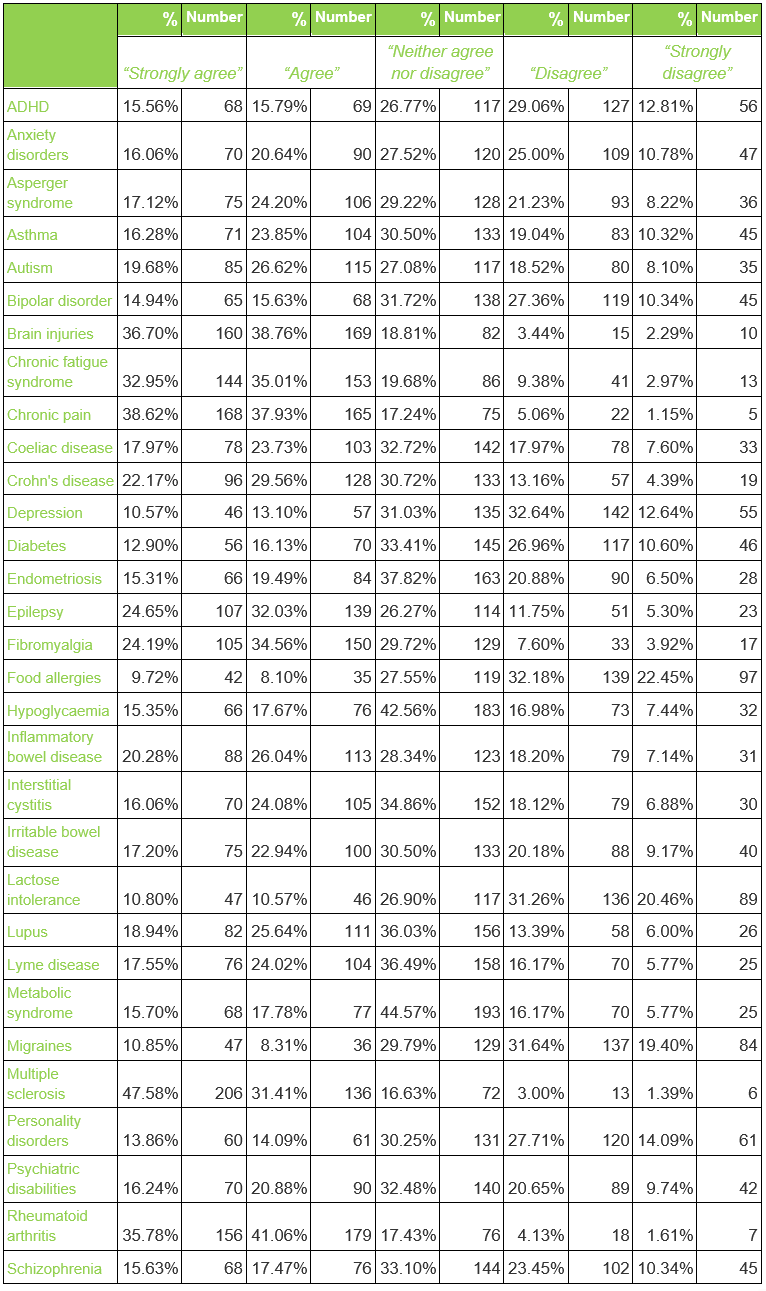
"People with this illness should receive special treatment at work."
Tell us whether you agree or disagree with this statement for each of the illnesses below.
